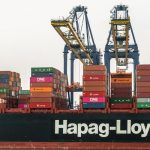Freight rates for Very Large Crude Carrier voyages loading in West Africa have fallen to near their lowest levels since the end of October, with sources citing ample tonnage lists in the major global loading zones, lower export volumes from the Persian Gulf and a slowdown in activity levels due to the Christmas holidays.
Platts, part of S&P Global Commodity Insights, assessed freight on the 260,000 mt WAF-Far East route at w56 on Dec. 27, down w20 from its recent peak of w76 on Oct. 31. Before rates began to decrease in the week beginning Dec. 11 they had been hovering between the low 70s and high 60s.
After recording lower rates during the summer period, the WAF VLCC segment had begun to recover in October, with support coming from higher demand in Europe for oil, in order to replenish stocks in time for the winter, as well as firming Persian Gulf and US Gulf markets, according to sources. A sharp rise in Suezmax rates also helped to prop up the VLCC market, with charterers looking to part-load their cargoes on VLCCs in order to avoid paying the elevated prices being quoted by Suezmax owners.
However, following the significant drop in the WAF-UK/Continent Suezmax market in November, WAF VLCC rates have been unable to avoid coming off from their recent highs. Platts assessed freight on the 260,000 mt WAF-UKC route at w62 on Dec. 27, down w23 from its recent peak of w85 on Oct. 31.
Unclear 2024 outlook
Market participants have mixed views on what exactly 2024 will have in store for the VLCC market, but in general see the outlook for rates as steady. However, many sources stressed that the large number of macroeconomic variables at play make it difficult to predict the market too far in advance.
Commenting on the outlook for 2024, a UK-based VLCC broker said that volumes should be stable as the ton-mile increase from rising inquiry levels in Venezuela would be offset by the projected OPEC+ cuts of 2.2 million b/d.
“But as there are few [newbuild] ships coming next year, we’re confident rates will be higher,” the broker added.
“Things will probably be steady [in 2024], but it’s hard to call at this point as many people will be on holiday until mid-January,” a second UK-based VLCC broker said. “People are waiting for the new year to see what happens.”
A third UK-based VLCC broker echoed the view that rates should remain stable amid a quiet end of December and early January period, although he said that there could be an overhang of tonnage.
Commenting on the dirty tanker market more generally, a UK-based Suezmax broker said much will depend on the extent to which the OPEC+ production cuts are implemented, whether Russia and Venezuela are able to maintain export volumes at their current levels, and how the political tensions in the Middle East region develop.
“However, as a rule, outlook is fairly steady — I don’t think we’ll see the spikes we saw early last year,” the broker said.
Source: Hellenic Shipping News






